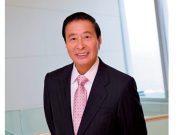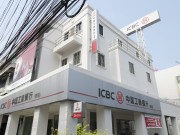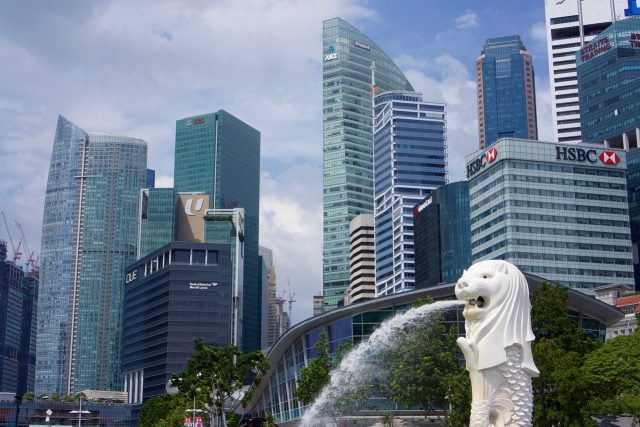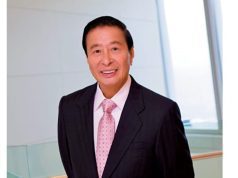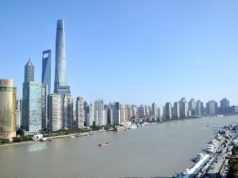Singapore New Single Family Office Tax Incentives: 1,100 SFOs Awarded Tax Incentives End-2022, 5 Tax Enhancements – Philanthropy Tax Incentive Scheme Starts in 2024, Blended Finance Structures to Support Net Zero, Allow Climate-Related Investments Worldwide, Qualify Investments into Singapore Non-Listed Companies & Private Credit, Hiring & Singapore Expenditure Changes
5th July 2023 | Hong Kong
Singapore has announced new single family office tax incentive, with 1,100 single family offices awarded tax incentives at the end of 2022 (2021: 700 since tax program inception) and introducing 5 new tax enhancements for single family offices in Singapore: 1) Philanthropy Tax Incentive Scheme starts in 2024 2) Blended Finance Structures to support Net Zero 3) Allow Climate-Related Investments worldwide 4) Qualify Investments into Singapore non-listed companies & private credit 5) Hiring & Singapore expenditure changes. See below for details of family office tax enhancements, and update on family offices by Ravi Menon, Monetary Authority of Singapore Managing Director | More info on Singapore family office tax incentives below | View Singapore Family Office Tax Incentives Infographic 2023
“ Singapore New Single Family Office Tax Incentives: 1,100 SFOs Awarded Tax Incentives End-2022, 5 Tax Enhancements – Philanthropy Tax Incentive Scheme Starts in 2024, Blended Finance Structures to Support Net Zero, Allow Climate-Related Investments Worldwide, Qualify Investments into Singapore Non-Listed Companies & Private Credit, Hiring & Singapore Expenditure Changes “
Singapore New Single Family Office Tax Incentives

5 new tax enhancements for single family offices in Singapore.
- Philanthropy Tax Incentive Scheme starts in 2024
- Blended Finance Structures to support Net Zero
- Allow Climate-Related Investments Worldwide
- Qualify Investments into Singapore non-listed companies & private credit
- Hiring & Singapore expenditure changes.
Introduction
MAS has been providing tax incentives to the SFO sector to help create jobs, generate demand for domestic service providers, and channel capital to enterprises in Singapore.
- Our incentive schemes exempt from tax qualifying SFOs’ income derived from investments managed in Singapore.
- In return, the SFOs commit to manage assets, hire employees here and incur business spending.
- Specifically, SFOs applying for our tax incentives are required to:
- employ a minimum of 2 to 3 investment professionals;
- incur business spending of S$200,000 to S$1 million, depending on the size of the SFO’s funds; and
- invest at least S$10 million or 10% of their AUM, whichever is lower, in Singapore equities, bonds, funds, or Singapore operating companies.
As outlined by MAS Chairman Tharman Shanmugaratnam two weeks ago, MAS will be adjusting the tax incentives for SFOs to encourage them to:
- deploy their capital more purposefully to benefit Singapore and the region; and
- increase contributions towards environmental and social causes.
We will make enhancements in 5 areas.
1) First, we will encourage SFOs to participate in blended finance structures, including those which support the region’s transition to net zero. We will introduce three new features.
- One, we will broaden the scope of eligible investments to include blended finance structures in which financial institutions in Singapore have been substantially involved.
- Two, we will give more recognition to concessional capital invested in such blended finance structures. Concessional capital is capital that accepts lower returns or higher risks, compared to other investors, and can help catalyse commercial capital into worthwhile but less attractive green and transition projects.
- The ability to crowd in capital from other investors is why we want to encourage and give extra recognition to concessional capital.
- Hence, for every dollar of concessional capital invested, we will recognise it as equivalent to up to $2 of investments for the purpose of assessing if the SFO has met its investment requirement.
- Three, we will recognise grants that SFOs give to support such blended finance structures. Grants have no expectation of income or return of principal.
- Given its deeply concessional nature, we will recognise as $2 for every dollar of grant given to blended finance structures.
2) Second, we will encourage SFOs to invest in climate-related projects.
- For the purpose of assessing if the SFO has met its investment requirement, we will recognise its climate-related investments – anywhere in the world, and not limited to Singapore.
- Climate change is a global problem that is not bounded by national borders. As a low-lying island state, Singapore is particularly vulnerable to climate change. We should thus recognise all efforts made to address climate change issues.
3) Third, we will also encourage SFOs to invest in Singapore companies and the local equity market. We will make two enhancements.
- One, the scope of the tax incentive will be expanded to recognise all investments in non-listed Singapore operating companies (including private credit), and not just private equity investments as is the case today.
- Two, we will recognise twice the amount invested in Singapore-listed equities, and in eligible Exchange Traded Funds (ETFs) and unlisted funds which invest primarily in Singapore-listed equities, for purposes of meeting the SFO’s investment requirement.
4) Fourth, we will encourage SFOs to contribute more to job creation and value creation for the Singapore ecosystem. We will make two enhancements:
- One, we will now require that at least one of the investment professionals that SFO applicants currently need to hire is a non-family member. This will expand the pool of available jobs for professionals in Singapore.
- Two, all new SFO applicants will have to now meet the business spending requirement solely from spending locally unlike previously when this could be met with overseas spending. This will help channel greater benefits to Singapore-based businesses and service providers.
5) Fifth, we will encourage SFOs to conduct philanthropic activities through Singapore, both locally and overseas. We will make two enhancements.
- One, to encourage giving locally, we will recognise donations to local charities alongside normal business spending.
- Two, to encourage giving overseas using Singapore family offices as a base, we will launch today the Philanthropy Tax Incentive Scheme (PTIS) for family offices.
- The PTIS, which was announced in Budget 2023 and will go live on 1 January 2024, will allow qualifying donors in Singapore to claim 100% tax deduction, capped at 40% of the donor’s statutory income, for overseas donations made through qualifying local intermediaries. [1]
- We hope the introduction of PTIS will encourage philanthropic giving to become a regular, professional feature of family offices here.
How is MAS (Monetary Authority of Singapore) harnessing the benefits and addressing the risks of wealth inflows?

Ravi Menon: I will now move on to the topic of wealth flows into Singapore. This issue has attracted much media and public interest. MAS has focused on harnessing the benefits of these wealth inflows while addressing their risks. But before explaining how we do this, let me try to set the wealth inflows in context.
First, as a trusted, vibrant, and well-regulated international financial centre, Singapore has attracted large inflows of wealth to be managed here.
- Assets under management (AUM) have grown an annual average of 15% during 2017 to 2021.
- A broad range of investors have contributed to this growth: global and regional institutional investors as well as individual investors.
- Family offices are one particular category of individual investment. The number of Single Family Offices (SFOs) awarded tax incentives by MAS increased to 1,100 as of end-2022, up from 700 in 2021.
Second, contrary to popular perception, the bulk of the wealth flows into Singapore come from institutional investors and not family offices or high net worth individuals.
- Non-retail individual clients – which includes family offices, clients of external asset managers, private trusts, and high net worth individuals – made up only 20% of the increase in total assets managed in Singapore from 2017 to 2021.
- SFOs that apply for and are granted tax incentives by MAS managed about S$90 billion of assets as at 2021, less than 2% of the S$5.4 trillion total assets managed in Singapore.
Third, wealth inflows into Singapore have little effect on the exchange rate, domestic inflation, property prices or car prices.
- The reason for this is simple: while the wealth is managed here, most of it is invested outside Singapore.
- This means that the wealth inflows typically remain in foreign currencies and have little or no effect on the Singapore Dollar exchange rate. Singapore is just an intermediary for these flows.
- As for inflation, it has little to do with wealth inflows into Singapore, let alone the portion due to SFOs. The step-up in inflation since late 2021 was mainly due to sharp increases in global energy and food prices, and stronger domestic wage growth.
- As for private residential properties, purchases by all foreigners have accounted for a low share of transaction volume over the last three years, averaging about 4%. There were no purchases by SFOs in the last three years, and their foreign employees accounted for an insignificant number within this 4%.
- Likewise, SFOs and their foreign employees account for a tiny proportion of car purchases in Singapore.
Instead, the key risk that MAS is focused on with respect to wealth inflows into Singapore is potential money laundering.
Be it high net worth individuals, or SFOs, MAS expects financial institutions servicing them to apply stringent anti-money laundering controls.
- Financial institutions are expected to conduct additional due diligence such as corroborating the customers’ source of wealth.
- Where doubts or suspicions are flagged as part of their due diligence, financial institutions have to take appropriate risk mitigation measures. These include not onboarding the customer or discontinuing the relationship. If there is suspicion of criminal activity, they have to file a Suspicious Transaction Report.
- MAS has been carrying out several onsite inspections to ensure that financial institutions’ controls in the wealth management area continue to keep pace with money laundering/terrorism financing risks.
- In March this year, we issued a circular, telling financial institutions to be alert to additional money laundering/terrorism financing risks when dealing with legal persons and arrangements which are used for wealth management purposes, including family offices.
Family offices in Singapore are already substantially covered for money laundering risks.
- Multi Family Offices, which manage third-party funds and are licensed by MAS, are already subject to the same anti-money laundering controls that we apply on all regulated financial institutions.
- Likewise, the majority of SFOs in Singapore – which are granted tax incentives by MAS – are required to have an account with a bank in Singapore, and are thus subject to the anti-money laundering controls applied by our banks.
- The remaining SFOs are likely to have engaged the services of other financial institutions or professional services entities such as lawyers or corporate service providers in Singapore who are similarly required to apply suitable anti-money laundering measures on their clients.
MAS will take additional measures to strengthen surveillance and defence against money laundering risks in the SFO sector.
- Specifically, we will require all SFOs to:
- notify MAS when they commence operations and also annually; and
- maintain a business relationship with an MAS-regulated financial institution that would perform anti-money laundering checks on these SFOs.
- MAS will soon release a public consultation paper on these proposals.
Even as we manage the risks posed by wealth inflows, it is important that the management of this wealth benefits Singapore and serves a larger purpose.
- Private banks in Singapore, for instance, hire more than 15,000 professionals, of which about 85% are locals.
- They also generate business for other firms such as fund management companies when their clients invest in funds managed by those companies.
- Similarly, family offices create demand for external service providers such as legal, custody, fund administration, and tax firms.
MAS has been providing tax incentives to the SFO sector to help create jobs, generate demand for domestic service providers, and channel capital to enterprises in Singapore.
- Our incentive schemes exempt from tax qualifying SFOs’ income derived from investments managed in Singapore.
- In return, the SFOs commit to manage assets, hire employees here and incur business spending.
- Specifically, SFOs applying for our tax incentives are required to:
- employ a minimum of 2 to 3 investment professionals;
- incur business spending of S$200,000 to S$1 million, depending on the size of the SFO’s funds; and
- invest at least S$10 million or 10% of their AUM, whichever is lower, in Singapore equities, bonds, funds, or Singapore operating companies.
As outlined by MAS Chairman Tharman Shanmugaratnam two weeks ago, MAS will be adjusting the tax incentives for SFOs to encourage them to:
- deploy their capital more purposefully to benefit Singapore and the region; and
- increase contributions towards environmental and social causes.
We will make enhancements in five areas.
First, we will encourage SFOs to participate in blended finance structures, including those which support the region’s transition to net zero. We will introduce three new features.
- One, we will broaden the scope of eligible investments to include blended finance structures in which financial institutions in Singapore have been substantially involved.
- Two, we will give more recognition to concessional capital invested in such blended finance structures. Concessional capital is capital that accepts lower returns or higher risks, compared to other investors, and can help catalyse commercial capital into worthwhile but less attractive green and transition projects.
- The ability to crowd in capital from other investors is why we want to encourage and give extra recognition to concessional capital.
- Hence, for every dollar of concessional capital invested, we will recognise it as equivalent to up to $2 of investments for the purpose of assessing if the SFO has met its investment requirement.
- Three, we will recognise grants that SFOs give to support such blended finance structures. Grants have no expectation of income or return of principal.
- Given its deeply concessional nature, we will recognise as $2 for every dollar of grant given to blended finance structures.
Second, we will encourage SFOs to invest in climate-related projects.
- For the purpose of assessing if the SFO has met its investment requirement, we will recognise its climate-related investments – anywhere in the world, and not limited to Singapore.
- Climate change is a global problem that is not bounded by national borders. As a low-lying island state, Singapore is particularly vulnerable to climate change. We should thus recognise all efforts made to address climate change issues.
Third, we will also encourage SFOs to invest in Singapore companies and the local equity market. We will make two enhancements.
- One, the scope of the tax incentive will be expanded to recognise all investments in non-listed Singapore operating companies (including private credit), and not just private equity investments as is the case today.
- Two, we will recognise twice the amount invested in Singapore-listed equities, and in eligible Exchange Traded Funds (ETFs) and unlisted funds which invest primarily in Singapore-listed equities, for purposes of meeting the SFO’s investment requirement.
Fourth, we will encourage SFOs to contribute more to job creation and value creation for the Singapore ecosystem. We will make two enhancements:
- One, we will now require that at least one of the investment professionals that SFO applicants currently need to hire is a non-family member. This will expand the pool of available jobs for professionals in Singapore.
- Two, all new SFO applicants will have to now meet the business spending requirement solely from spending locally unlike previously when this could be met with overseas spending. This will help channel greater benefits to Singapore-based businesses and service providers.
Fifth, we will encourage SFOs to conduct philanthropic activities through Singapore, both locally and overseas. We will make two enhancements.
- One, to encourage giving locally, we will recognise donations to local charities alongside normal business spending.
- Two, to encourage giving overseas using Singapore family offices as a base, we will launch today the Philanthropy Tax Incentive Scheme (PTIS) for family offices.
- The PTIS, which was announced in Budget 2023 and will go live on 1 January 2024, will allow qualifying donors in Singapore to claim 100% tax deduction, capped at 40% of the donor’s statutory income, for overseas donations made through qualifying local intermediaries. [1]
- We hope the introduction of PTIS will encourage philanthropic giving to become a regular, professional feature of family offices here.
Singapore to Announce New Initiatives for Family Offices in July 2023: Tax, Incentives, Grants for Contributions to Charity, Investments into Capital, Grants & Climate Change
24th June 2023 – Singapore will be announcing new initiatives for family offices in July 2023, introducing improved tax privileges, incentives, grants for contributions to charity, investments into capital, grants & climate change. The announcement was made by Singapore Senior Minister & MAS (Monetary Authority of Singapore) Chairman Tharman Shanmugaratnam at the Association of Banks in Singapore (ABS) 50th anniversary dinner (23/6/23). Earlier in February 2023, Singapore Finance Minister Lawrence Wong had announced a new philanthropy tax incentive scheme. Singapore-based family offices will be receiving 100% tax deduction with a 40% limit of total income for overseas donations made via qualifying Singapore intermediaries under the New Philanthropy Tax Incentive Scheme announced by Singapore Finance Minister Lawrence Wong (2023 Budget Speech, 14/2/23), eligible for qualified family offices under the Monetary Authority of Singapore (MAS) Section 13O or 13U Schemes with details to be announced at the end of June 2023. More info below.
Singapore-Based Family Offices to Receive 100% Tax Deduction with 40% Limit of Total income for Overseas Donations via Qualifying Singapore Intermediaries under New Philanthropy Tax Incentive Scheme, Qualified Family Offices under Singapore MAS Section 13O or 13U Schemes with Details to be Announced in June 2023

15th February 2023 – Singapore-based family offices will be receiving 100% tax deduction with a 40% limit of total income for overseas donations made via qualifying Singapore intermediaries under the New Philanthropy Tax Incentive Scheme announced by Singapore Finance Minister Lawrence Wong (2023 Budget Speech, 14/2/23), eligible for qualified family offices under the Monetary Authority of Singapore (MAS) Section 13O or 13U Schemes with details to be announced at the end of June 2023. In April 2022, the Monetary Authority of Singapore (MAS) had introduced new family office tax exemption criteria for new applications from 18th April 2022, including a S$10 million minimum fund size (rising to S$20 million in 2 years), hiring 2 investment professionals, minimum of 10% of AUM or S$10 million to be invested in local investments (listed debts / securities, Singapore registered funds, private investments into Singapore companies), and minimum of S$200,000 annual business expenditure. These are the new criteria for the Singapore Resident Fund Scheme and Enhanced-Tier Fund Tax Exemption Scheme tax incentives, provided for under sections 13O of the Income Tax Act 1947 (ITA) for fund vehicles managed by single family offices (SFOs). For 13U, the minimum fund size of S$50 million remains, with new criteria including hiring a minimum of 3 investment professionals with at least 1 non-family member, minimum annual business expenditure of S$500,000 and minimum of 10% of AUM or S$10 million to be invested in local investments (listed debts / securities, Singapore registered funds, private investments into Singapore companies). These new criteria comes into effect for all new applications from 18th April 2022. More info below.
Qualified Family Offices under Singapore MAS Section 13O or 13U Schemes with Details to be Announced in June 2023

Singapore Family Office Tax Exemption: S$10 Million Fund Size, 2 Investment Professionals & 10% AUM in Local Investment, Effective from 18th April 2022
15th April 2022 – The Monetary Authority of Singapore (MAS) has introduced new family office tax exemption criteria for new applications from 18th April 2022, including a S$10 million minimum fund size (rising to S$20 million in 2 years), hiring 2 investment professionals, minimum of 10% of AUM or S$10 million to be invested in local investments (listed debts / securities, Singapore registered funds, private investments into Singapore companies), and minimum of S$200,000 annual business expenditure. These are the new criteria for the Singapore Resident Fund Scheme and Enhanced-Tier Fund Tax Exemption Scheme tax incentives, provided for under sections 13O of the Income Tax Act 1947 (ITA) for fund vehicles managed by single family offices (SFOs). For 13U, the minimum fund size of S$50 million remains, with new criteria including hiring a minimum of 3 investment professionals with at least 1 non-family member, minimum annual business expenditure of S$500,000 and minimum of 10% of AUM or S$10 million to be invested in local investments (listed debts / securities, Singapore registered funds, private investments into Singapore companies). These new criteria comes into effect for all new applications from 18th April 2022 (Monday).
New Singapore Family Office Tax Exemption
These new criteria comes into effect for all new applications from 18th April 2022 (Monday).
13O:
For 13O, there is a S$10 million minimum fund size (rising to S$20 million in 2 years), hiring 2 investment professionals, minimum of 10% of AUM or S$10 million to be invested in local investments (listed debts / securities, Singapore registered funds, private investments into Singapore companies), and minimum of S$200,000 annual business expenditure. These are the new criteria for the Singapore Resident Fund Scheme and Enhanced-Tier Fund Tax Exemption Scheme tax incentives, provided for under sections 13O of the Income Tax Act 1947 (ITA) for fund vehicles managed by single family offices (SFOs).
13U:
For 13U, the minimum fund size of S$50 million remains, with new criteria including hiring a minimum of 3 investment professionals with at least 1 non-family member, minimum annual business expenditure of S$500,000 and minimum of 10% of AUM or S$10 million to be invested in local investments (listed debts / securities, Singapore registered funds, private investments into Singapore companies). These are the new criteria for the Singapore Resident Fund Scheme and Enhanced-Tier Fund Tax Exemption Scheme tax incentives, provided for under sections 13U of the Income Tax Act 1947 (ITA) for fund vehicles managed by single family offices (SFOs).
Sign Up / Register
Caproasia Users
- Manage $20 million to $3 billion of assets
- Invest $3 million to $300 million
- Advise institutions, billionaires, UHNWs & HNWs
Caproasia Platforms | 11,000 Investors & Advisors
- Caproasia.com
- Caproasia Access
- Caproasia Events
- The Financial Centre | Find Services
- Membership
- Family Office Circle
- Professional Investor Circle
- Investor Relations Network
Monthly Roundtable & Networking
Family Office Programs
The 2025 Investment Day
- March - Hong Kong
- March - Singapore
- July - Hong Kong
- July - Singapore
- Sept- Hong Kong
- Sept - Singapore
- Oct- Hong Kong
- Nov - Singapore
- Visit: The Investment Day | Register: Click here
Caproasia Summits
- The Institutional Investor Summit
- The Investment / Alternatives Summit
- The Private Wealth Summit
- The Family Office Summit
- The CEO & Entrepreneur Summit
- The Capital Markets Summit
- The ESG / Sustainable Investment Summit




